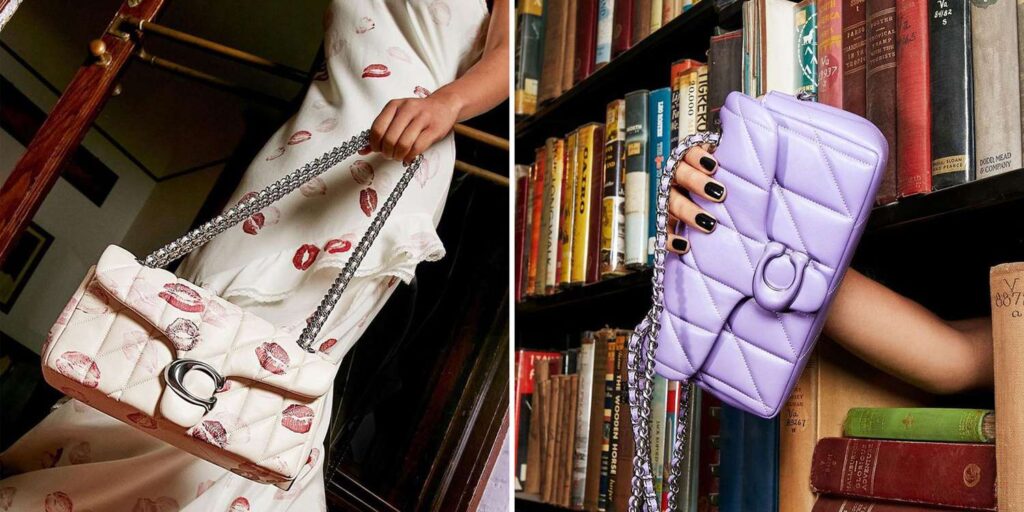Chanel’s revenues fell by 18 percent on a year-over-year basis to $10.1 billion dollars in 2020 due to widespread closures of its network of brick-and-mortar stores, the French fashion house stated in its latest annual report, revealing that profits were down by 41.4 percent to $2.05 billion compared to last year. While Chanel’s sales dropped by a larger percentage than rivals like LVMH (down 17 percent for 2020) and Hermès (down 6 percent), the privately-held brand, which began reporting its financials in 2018, stated that it is “bouncing back quickly,” with revenues for the first half of 2021 increasing by double-digits compared to its 2019 pre-pandemic numbers, driven largely by consumers in China and the U.S.
Detailing its sales slumps by region, Chanel reported that revenue in Asia Pacific was down by 3.1 percent to $5.26 billion for the year, followed by the Americas, which fell by 15 percent to $1.97 billion, and Europe, which saw sales plummet by 36.4 percent to $2.89 billion. Taken together, Chanel’s double-digit dip follows from its decision to “stick to its long-held strategy of not selling fashion, watches and fine jewelry online,” Reuters reported on Monday even as other luxury brands leaned on e-commerce to make up for stores that were temporarily shuttered as a result of pandemic lockdowns. Instead of looking to online sales for these categories, Chanel opted to “turn its sales assistants into personal shoppers showing collections to clients, organizing fitting sessions and special deliveries at home, and keeping in touch through a new app,” Chanel’s finance chief Philippe Blondiaux, told the publication.
Despite “a highly disrupted environment that led to the closure of its boutique and manufacture network, and the suspension of international travel,” Chanel says it “demonstrated strong resilience across all product lines in 2020.” The 111-year-old brand pointed to “strong growth in online sales” in its Fragrance & Beauty division – particularly skincare, which had “a notably strong performance within the Beauty segment” – as helping to “partially offset the impact from the decline of travel retail.” E-commerce sales for Chanel’s cosmetics and fragrances grew by 113 percent in 2020 and are up by 57 percent this year. It also noted that Watches and Fine Jewelry sales were “resilient.”
Blondiaux asserted on Monday that Chanel’s rebounding sales are not merely the result of pent-up demand. “We are beyond what some have called revenge buying, [and] believe it is a deep and lasting momentum, which may not be true for all the players in the luxury industry, but it is true for the big brands that continued to invest, as we did.” Chanel funneled $1.12 billion in cash into its “retail [outposts], offices, manufacturing and logistics, etc.” in 2020, in what it calls “an all-time high in its history.”
And in line with an increasingly common practice among brands across the board, which have been including a growing focus on ESG in their annual reports, Blondiaux stated that “in keeping with our long-term approach and commitment to sustainable business, we also launched our strategy to tackle climate change through CHANEL Mission 1.5°,” noting that “the business has made early progress against the science-based targets we have set, as we look to accelerate the move to a lower carbon economy and help protect the world’s most vulnerable communities and ecosystems from the impacts of climate change.”
On the pricing front Blondiaux stated that while Chanel has not hiked up its prices so far this year, it has not ruled it out. “This may happen in the second half of the year – in line with [Chanel’s] policy of reviewing prices worldwide twice a year.” The brand boosted prices twice in 2020, citing “the consequence of recent significant exchange rate fluctuations between the euro and certain local currencies.” And reflecting on the enduring M&A developments in the industry, Blondiaux distanced Chanel from the trend, telling Reuters that while the pandemic has “exposed the divide between healthier and weaker luxury brands and [that] may accelerate consolidation in the sector,” Chanel does “not have any M&A ambitions,” from either a buying or selling perspective.











